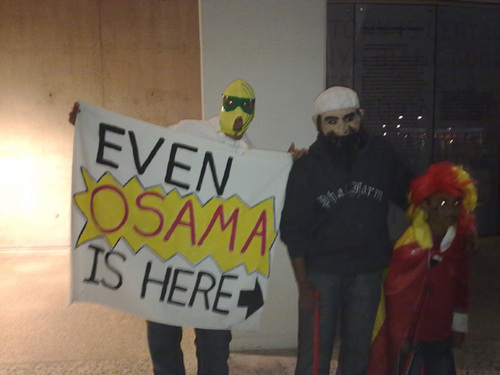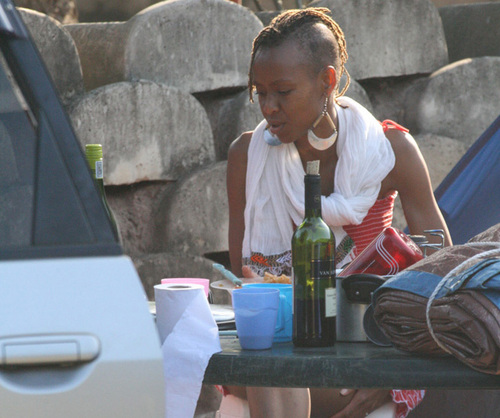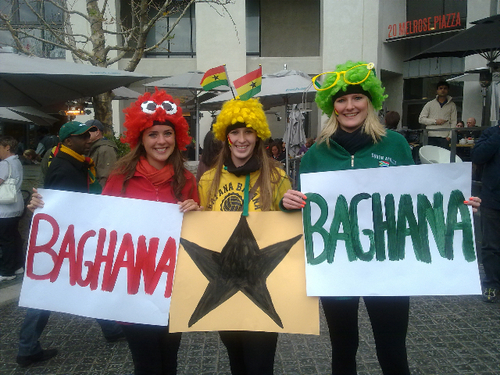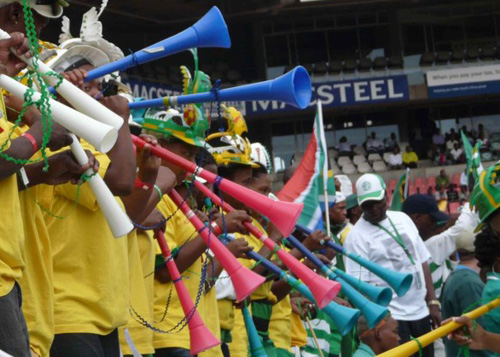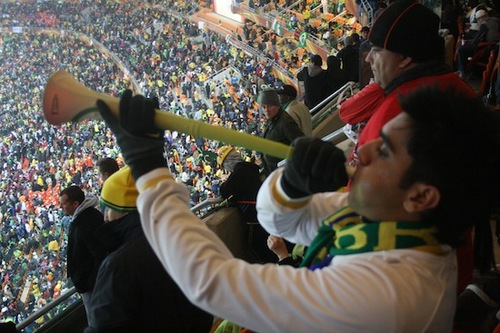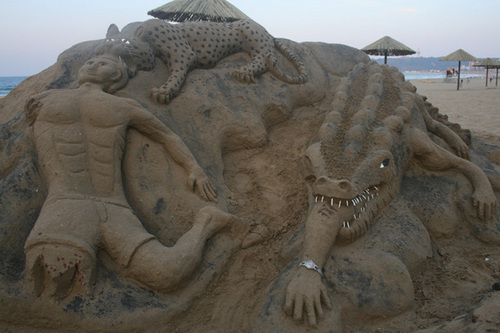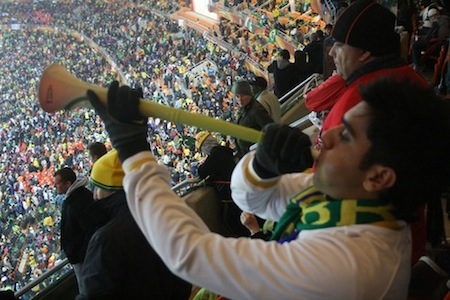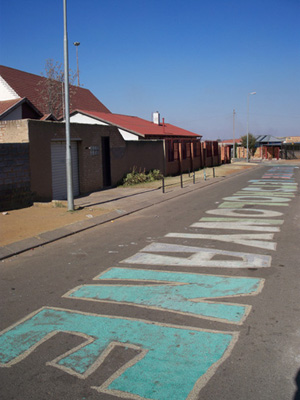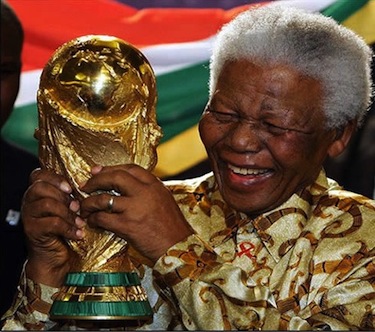In this dossier, a series of football enthusiasts (who also happen to be social and cultural critics), offer their reflections upon the meaning and significance of the 2010 World Cup in South Africa. Much commentary and controversy has already … Continue reading “World Cup 2010”
Tag: World Cup
The Pan-African Journey
mark sawyer“…I can see that you are here in the millions and my last warning to you is that you are to stand firm behind us so that we can prove to the world that when the African is given a … Continue reading “The Pan-African Journey”
A World Cup of a 'Special Type'
karam singhThere have been numerous milestones in South Africa’s journey from a pariah state characterized by the most brutal form of settler colonialism and white supremacy to a young democracy struggling to find its rightful place in a the post … Continue reading “A World Cup of a 'Special Type'”
Vuvuzela: A Loud, Blank Cipher
andrew rossLocals who had hoped that the rest of the world would take away some useful knowledge about South Africa’s current affairs could hardly be faulted for cursing the existence of the vuvuzela. Zealous opinion about the ubiquitous plastic horns … Continue reading “Vuvuzela: A Loud, Blank Cipher”
Listening to the World Cup
jennifer doyleWith ESPN’s broadcast of the World Cup’s opening match, my fellow tweeters began to crack jokes about The Lion King. We imagined Rafiki calling the matches, or Mufasa, and half expected the referees to lift up the Jabulani to announce … Continue reading “Listening to the World Cup”
World Cup Soccer: Enjoyment and Identification
Eli Jelly-SchapiroFootball fans can be divided, somewhat crudely, into two categories: those attracted to the game for aesthetic gratification, and those whose fandom is rather driven by feelings of group solidarity. These categories are not mutually exclusive. A beautiful move acquires … Continue reading “World Cup Soccer: Enjoyment and Identification”
Africa's World Cup?
sean jacobsOn the eve of Ghana’s fateful loss to Uruguay in the quarterfinals, South Africa’s ruling party, the African National Congress, declared them the Black Stars of Africa. Locals joined their compatriots across the continent in willing the Black Stars on. … Continue reading “Africa's World Cup?”
World Cup Soccer: Enjoyment and Identification
Eli Jelly-SchapiroFootball fans can be divided, somewhat crudely, into two categories: those attracted to the game for aesthetic gratification; and those whose fandom is rather driven by feelings of group solidarity. These categories are not mutually exclusive. A beautiful move acquires even greater beauty when performed by a player or team with whom one identifies; feelings of solidarity are emboldened when joined to rare artistry.
Bafana Bafana: The Reckoning
Eli Jelly-SchapiroWhen Siphiwe Tshabalala scored for Bafana Bafana against Mexico on June 11, he provided the World Cup the sublime opening note longed for by his country, and by followers of football across the planet. Mexico’s late equalizer dampened the local … Continue reading “Bafana Bafana: The Reckoning”
World Cup Security Workers Protest
Eli Jelly-SchapiroIn November of 2007 the workers building Durban’s Moses Mabhida Stadium staged a wildcat strike, demanding monthly project bonuses and better Health and Safety standards. Their action helped inspire a wave of such work stoppages at stadium sites throughout the country, and contributed to one of the abiding narrative themes of the World Cup’s lead-up: would the infrastructure be ready in time?
The World Cup III: In The Stadium's Shadow
Eli Jelly-SchapiroFifteen years after the new South Africa’s first democratic elections, the dream of a true, non-racial, economically just “Rainbow Nation” endures. But so too do the inequalities of race and class that are the legacy of apartheid and its colonialist antecedents. In April of 2009 Jacob Zuma, anointed restorer of the liberationist mantle, rode a wave of populist energy to the national presidency. His ascension, however, has not quelled a resurgence of social unrest. For the majority of South Africans who retain faith in the nation’s potential, but mourn the violent inequities that continue to shape daily life in apartheid’s aftermath, the World Cup is cause for a difficult if needed national reckoning. [Part 3 of a 3 Part series.]
The World Cup: Will South Africa Shine?
Eli Jelly-SchapiroFrom the editors: In the lead-up to the World Cup, the first to be held in Africa, we are serializing in three parts an essay by Eli Jelly-Schapiro on the cultural politics of soccer. This essay will then be followed by a Periscope forum about the Cup. Read more.


